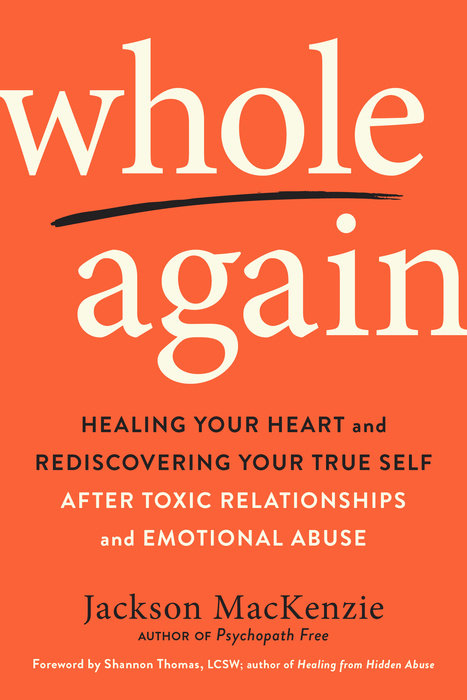Cognitive behavioral therapy (CBT) can help you out-think negative patterns that may be keeping you from depression recovery — and from enjoying life.
YOU MIGHT ALSO LIKE
CLEAR ALL
BY TOPIC
BY TEACHER
BY TYPE
FILTER

TOPIC
- Anxiety (68)
- Cognitive Behavioral Therapy (53)
- Manifestation (47)
- Mental Health Challenges (38)
- Positive Thinking (38)
- Visualization (37)
- Clinical Depression (34)
- Honoring Emotion (29)
- Stress Management (28)
- Negative Self-Talk (27)
- Self-Care (23)
- Cancer (21)
- Neuroscience (21)
- Suicide (21)
- Athlete Well-Being (19)
- Children’s Well-Being (18)
- Goal Setting (18)
- Mind-Body Connection (18)
- Parenting (18)
- Trauma Healing (18)
- Self-Limiting Beliefs (17)
- Stress (17)
- Anger (16)
- Self-Esteem (15)
- Self-Healing (15)
- Child’s Emotional Growth (14)
- Communication Skills (14)
- Habit Formation (14)
- Self-Development (14)
- Well-Being (14)
- BIPOC Well-Being (13)
- Chronic Anxiety (13)
- Emotional Intelligence (EQ) (13)
- Fear (13)
- Mindfulness (13)
- Psychology (13)
- PTSD (13)
- Resilience (13)
- Brain Health (12)
- Confidence (12)
- Finding Meaning (12)
- Mindfulness Practices (12)
- Positive Self-Talk (12)
- Relationship Challenges (12)
- Search for Purpose (12)
- Shame (12)
- Addiction (11)
- Habits of Mind (11)
- Imagination and Creativity (11)
- Self-Compassion (11)
- Courage (10)
- Growth Mindset (10)
- Meditation (10)
- Psychological Approaches (10)
- Self-Discovery (10)
- Self-Reflection Practices (10)
- Black Well-Being (9)
- Child’s Anxiety (9)
- Cognitive Psychology (9)
- Compassion (9)
- Motivation (9)
- Self-Worth (9)
- Trauma (9)
- Vulnerability (9)
- Awareness (8)
- Empowerment (8)
- Entrepreneurship (8)
- Grief (8)
- Physical Health (8)
- Positive Psychology (8)
- Transformation (8)
- Addiction Recovery (7)
- Affirmations (7)
- Anger Management (7)
- Criticism and Rejection (7)
- Gratitude (7)
- Happiness (7)
- Inner Peace (7)
- Life Challenges (7)
- Memoir (7)
- Panic Attacks (7)
- Setting Limits and Boundaries (7)
- Authenticity (6)
- Challenges with Teens (6)
- Child’s Challenging Behavior (6)
- Community Healing (6)
- Creative Well-Being (6)
- Dysfunctional Childhood (6)
- Eating Disorders (6)
- Human Potential (6)
- Joy (6)
- Neuroplasticity (6)
- Presence (6)
- Self-Mastery (6)
- Veteran Well-Being (6)
- Women’s Well-Being (6)
- Acceptance (5)
- Adaptability (5)
- ADD/ADHD (5)
- Asking for Help (5)
- Breathwork (5)
- Child’s Trauma (5)
- Chronic Pain (5)
- Connection with Nature (5)
- Endurance (5)
- Family Dynamics (5)
- Fellowship and Community (5)
- Focus (5)
- Healing Approaches (5)
- Intention (5)
- Ketamine (5)
- Kindness (5)
- Men’s Well-Being (5)
- Neurodiversity (5)
- Offering Support to Others (5)
- Peak Performance (5)
- Perception (5)
- Problem Solving (5)
- Self-Acceptance (5)
- Situational Depression (5)
- Social Anxiety (5)
- Young Adult Well-Being (5)
- Activism/Service (4)
- Alcohol Addiction (4)
- Child Depression (4)
- Child’s ADD/ADHD (4)
- Disconnection (4)
- Guilt (4)
- Identity (4)
- Journaling (4)
- Loneliness (4)
- Mindfulness Meditation (4)
- OCD (4)
- Performance Anxiety (4)
- Post-Traumatic Growth (4)
- Psychedelic Research (4)
- Psychoanalysis (4)
- Self-Control (4)
- Self-Love (4)
- Self-Pressure (4)
- Self-Realization (4)
- Sleep (4)
- Speaking Your Truth (4)
- Spiritual Growth (4)
- Suffering (4)
- Yoga (4)
- Belonging (3)
- Biofeedback (3)
- Body Positivity (3)
- Building Culture (3)
- Codependency (3)
- Connection (3)
- Curiosity (3)
- Decision Making (3)
- Diet and Nutrition (3)
- Energy Healing (3)
- Integrative Medicine (3)
- Intergenerational Trauma (3)
- Internal Family Systems (3)
- Leadership (3)
- LSD (3)
- Military to Civilian Re-entry (3)
- Neuropsychology (3)
- Optimism (3)
- Performance Pressure (3)
- Psilocybin (3)
- Psychedelic-Assisted Therapy (3)
- Racial Healing (3)
- Relationship with Money (3)
- Romantic Relationships (3)
- Self-Actualization (3)
- Self-Expression (3)
- Sleep Disorders (3)
- Soul Mission (3)
- Spiritual Awakening (3)
- Spiritual Development (3)
- Toxic Relationships (3)
- Values (3)
- Abandonment (2)
- Academic Struggles (2)
- Attachment Theory (2)
- Autism (2)
- Autoimmune Disease (2)
- Body Image (2)
- Buddhism (2)
- Chakras (2)
- Child’s Autism (2)
- Cognition (2)
- Collective Trauma (2)
- Consciousness (2)
- Cross-Cultural Dynamics (2)
- Disabled Well-Being (2)
- Divorce and Breakup (2)
- Doubt (2)
- Ego (2)
- Empathy (2)
- Exercise (2)
- Failure (2)
- Forest Bathing (2)
- Forgiveness (2)
- Global Challenges (2)
- Guided Meditation (2)
- Healthy Eating (2)
- Holism (2)
- Hope (2)
- Hypnosis (2)
- Inner Strengths (2)
- Kundalini Yoga (2)
- Learning Styles (2)
- LGBTQIA Children (2)
- LGBTQIA Well-Being (2)
- Mentoring (2)
- Neoshamanism (2)
- Othering (2)
- Personality Disorders (2)
- Prayer (2)
- Race and Gender (2)
- Racial Identity (2)
- Racism (2)
- Rest (2)
- Self-Reckoning (2)
- Shadow (2)
- Social Psychology (2)
- Spirituality and Health (2)
- Storytelling (2)
- Subconscious (2)
- The Unconscious (2)
- Trauma-Informed Therapy (2)
- Wholeness (2)
- Willpower (2)
- AAPI Well-Being (1)
- Accepting Love (1)
- Acupressure (1)
- Archetypes (1)
- Art Therapy (1)
- Ayurveda (1)
- Betrayal (1)
- Binaural Beats (1)
- Boundary Confusion (1)
- Building Character (1)
- Bulimia (1)
- Bullying (1)
- Burnout (1)
- Cannabis/CBD (1)
- Caregiver Well-Being (1)
- Chronic Health Conditions (1)
- Collaboration (1)
- Competition (1)
- Conflict Resolution (1)
- Cross-Cultural Parenting (1)
- Dark Night of the Soul (1)
- Despair (1)
- Digital Life (1)
- Domestic Abuse (1)
- Dream Analysis (1)
- Drug Addiction (1)
- Ego Dissolution (1)
- Ego Transcendence (1)
- Embodiment (1)
- Environmental Justice (1)
- Epigenetics (1)
- Facing Own Death (1)
- Faith (1)
- Female Empowerment (1)
- Friendship (1)
- Generosity (1)
- Genetics (1)
- Goddess (1)
- Heartmath (1)
- Higher Calling (1)
- Highly Sensitive People (1)
- Identity Shifts (1)
- Illness and Injury (1)
- Inner Child (1)
- Inner Life (1)
- Insomnia (1)
- Interdependence (1)
- Intuition (1)
- Jealousy/Envy (1)
- Latinx Well-Being (1)
- Letting Go (1)
- Life-Altering Injury (1)
- Light Therapy (1)
- Living as an Empath (1)
- Living with Illness (1)
- Magick (1)
- Masculine/Feminine Dynamics (1)
- Memory (1)
- Microdosing (1)
- Motherhood (1)
- Narcissism (1)
- Naturopathy (1)
- Neopaganism (1)
- New Relationships (1)
- Nightmares (1)
- Non-Duality (1)
- Nutritional Medicine (1)
- Obsessions/Compulsions (1)
- Postpartum Depression (1)
- Pregnancy and Childbirth (1)
- Productivity (1)
- Psychedelic Journey (1)
- Psychology and Spirituality (1)
- Quitting Your Job (1)
- Racial Justice (1)
- Regret (1)
- Relationship with Time (1)
- Religious Experience (1)
- Science and Spirituality (1)
- Self-Reliance (1)
- Sexuality (1)
- Shamanism (1)
- Slumps (1)
- Social Justice (1)
- Social Media Addiction (1)
- Social Presence (1)
- Social Responsibility (1)
- Somatic Practices (1)
- Spiritual Life (1)
- Spiritual Practices (1)
- Sudden Weight Change (1)
- The Yips (1)
- Transcendent Experience (1)
- Trust (1)
- Visions and Hallucinations (1)
- Vitamin Supplementation (1)
- Wake-Up Calls (1)
- Witch (1)
- Witchcraft (1)
- Work Challenges (1)
- Work-Life Balance (1)
- Yoga Therapy (1)
- Youth Activism (1)
FILTER

TEACHER
- Michael Bernard Beckwith (5)
- Gabor Maté (4)
- Paul Gilbert (4)
- Shakti Gawain (4)
- Barbara Fredrickson (3)
- Brian Tracy (3)
- Daniel Amen (3)
- Daniel J. Siegel (3)
- Eric Maisel (3)
- Martin Seligman (3)
- Oprah Winfrey (3)
- Wayne Dyer (3)
- C. S. Lewis (2)
- Daniel Goleman (2)
- Edward Hallowell (2)
- Gabrielle Bernstein (2)
- John Sarno (2)
- Karla McLaren (2)
- Mark Victor Hansen (2)
- Richard Schwartz (2)
- Rick Hanson (2)
- Robin Carhart-Harris (2)
- Ruby Wax (2)
- Russell Brand (2)
- Tara Brach (2)
- Terri Cole (2)
- Terry Real (2)
- Zindel Segal (2)
- Abraham Maslow (1)
- Adam Phillips (1)
- Alain de Botton (1)
- Alanis Morissette (1)
- Alberto Villoldo (1)
- Amishi Jha (1)
- Amy Scher (1)
- Andrew Weil (1)
- Anodea Judith (1)
- Bessel van der Kolk (1)
- Biet Simkin (1)
- Blaise Aguirre (1)
- Bruce Lipton (1)
- Byron Katie (1)
- Chip Conley (1)
- Chögyam Trungpa (1)
- Connie Zweig (1)
- Danielle LaPorte (1)
- Deepak Chopra (1)
- Eckhart Tolle (1)
- Elaine Aron (1)
- Esther Perel (1)
- Gary Zukav (1)
- Gay Hendricks (1)
- Gordon Neufeld (1)
- Harriet Lerner (1)
- HeatherAsh Amara (1)
- Hyla Cass (1)
- Iskra Lawrence (1)
- James Doty (1)
- James Gordon (1)
- James Hillman (1)
- Jan Willis (1)
- Jana Long (1)
- Jay Shetty (1)
- Jeff Foster (1)
- Jeffrey Mishlove (1)
- John Bradshaw (1)
- John C. Parkin (1)
- Jon Kabat-Zinn (1)
- Judith Orloff (1)
- Kristin Neff (1)
- Leah Guy (1)
- Lewis Howes (1)
- Lindo Bacon (1)
- Lion Goodman (1)
- Lise Van Susteren (1)
- Lodro Rinzler (1)
- Lori Gottlieb (1)
- Marie Forleo (1)
- Mark Nepo (1)
- Mary Pryor (1)
- Mihály Csíkszentmihályi (1)
- Monnica Williams (1)
- Neale Donald Walsch (1)
- Nedra Glover Tawwab (1)
- Nicole LePera (1)
- Panache Desai (1)
- Paramahansa Yogananda (1)
- Poppy Jamie (1)
- Ralph De La Rosa (1)
- Renee Baribeau (1)
- Rosalind Watts (1)
- Rudolph Ballentine (1)
- Sandra Ingerman (1)
- Sigmund Freud (1)
- Stephanie Y. Evans (1)
- Steven Johnson (1)
- Temperance Alden (1)
- The Dalai Lama (1)
- Tony Gaskins Jr. (1)
- Tony Robbins (1)
- Viktor E. Frankl (1)
- William Bloom (1)










